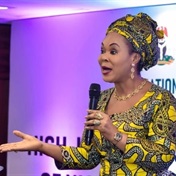
- Algerians aged 19 to 40 will earn around R1 400 monthly and have access to free healthcare from next month.
- Government has moved to address food shortages and a rising black market for staple foods.
- Algeria's welfare programme is based on estimation of the oil price, with the IMF saying that could be the answer to the government's budgetary needs.
By providing unemployment benefits to people between 19 to 40, the Algerian government seeks to contain growing discontent as the country continues to suffer from a series of shocks such as the Covid-19 pandemic and re-occurring food shortages.
Last week, President Abdelmadjid Tebboune announced that unemployed citizens between the ages of 19 and 40 would, as of March, receive US$92 monthly (roughly R1 385 at current exchange rates) in an attempt to preserve their dignity.
They would also receive free medical care.
Since last summer, there had been food shortages in the country.
In January, Kamel Rezig, the commerce minister, announced that children would not be allowed to buy cooking oil. It is understood black market traders were using children to buy staple products for resale at inflated prices.
According to Zine Labidine Ghebouli, a political analyst and postgraduate scholar at the University of Glasgow, where he focuses on Euro-Mediterranean affairs, Algeria was faced with its worst economic crisis in more than three decades.
"Algeria is now facing the most challenging economic situation since the 1988 October Riots, when thousands of young people took to the streets to protest an economic crisis caused by the decline in oil prices, austerity measures, and a youth bulge that led to mass unemployment. This major social upheaval, known as 'Black October', led to significant political changes, including the failed democratisation attempt of 1991," he said in his policy review in the Middle East Institute (MEI) think tank.
ALSO READ | Police brutality, political violence and flawed voters roll ahead of Zimbabwe by-elections
World Bank figures stated that the median age in Algeria was 28.5 years, meaning that half of the 45 million population was younger than 28.5 years. The World Bank also noted that in 2020, people aged 25 to 64 totalled approximately 21 million and they constituted the largest demographic group in the country.
In 2020, unemployment in Algeria stood at 12.83% - that figure had gone up to 15% since then as countries put in place Covid-19 lockdowns.
Politically, Tebboune had reason to preserve the youth population's dignity because since independence, according to Ghebouli, "Algeria's legacy of social welfare policies has been an enduring contract between the ruling elite and the population". If it's neglected, that could create room for instability and revolt.
Last year, the economy suffered a knock due to low oil prices - its major income earner and social safety nets took a knock, resulting in the rise in government debt and the fall in international reserves.
But a sudden rebound is what Tebboune based this unemployment benefit on.
"Algeria is enjoying temporary breathing space, as hydrocarbon prices reach new highs and the Covid-19 pandemic eases. Surging hydrocarbon export revenues are contributing to a marked decline in external financing needs and to the short-term stabilisation in growing domestic financing needs," stated a review of Restoring the Algerian Economy after the Pandemic, a periodical review done by the World Bank.
The IMF said the only way Algeria could meet its 2022 budgetary needs was if the oil prices firmed up. The organisation estimated that if a barrel of oil cost US$141.60 (R2 125), up from last year's US$83.60 (R1 254), Algeria could manage to fund its internal programmes.
The current price for a barrel of Brent crude oil was US$96.84.
The News24 Africa Desk is supported by the Hanns Seidel Foundation. The stories produced through the Africa Desk and the opinions and statements that may be contained herein do not reflect those of the Hanns Seidel Foundation.




 Publications
Publications
 Partners
Partners

























